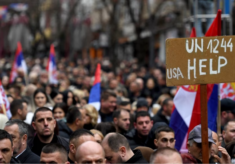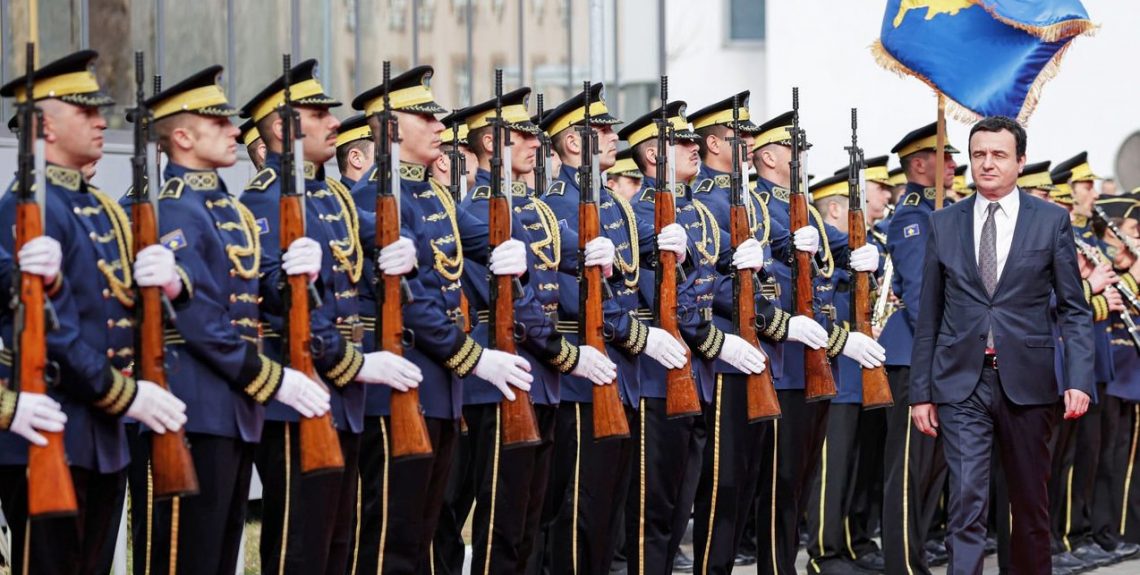After four months of hard talks, Self-Determination (LVV) and the Democratic League of Kosovo (LDK), the two parties that scored the best result at parliamentary elections in October, finally found an agreement to form a government headed by Albin Kurti, the LVV leader. His party got 29 seats at elections, while the LDK gained 28 seats.
Negotiations between LVV and LDK have repeatedly been on the verge of collapse during the last four months due to disagreements over the distribution of top positions and the name of the next President of the Republic (the actual expires in 2021), who is appointed by the Parliament. For the moment the discussion was postponed
Albin Kurti delivered an opening speech in the Assembly on the 3rd of February and got a 66 majority on 120 seats with the support of all ethnic minorities (10 seats) except the Serbians. Kurti stressed that his government will fight corruption and will try to save state resources. “We will have 15 ministries, not 21 like there were before. We will have 33 deputy ministers and not more than 80 like before. So, fewer expenses on posts and privileges in order to spend more in development projects” he underlined.
During the electoral campaign, both LVV and LDK accused the outgoing coalition, led by parties born on the ashes of the guerrilla that fought against Serbia in the Nineties, to have failed the country through mass corruption and nepotism.
In the new government, LVV members will run the crucial ministries of Economy, Finance, Health. The new minister of Foreign Affairs, Glauk Konjufca, is also an LVV member. Ministries of Culture, Interior, Defence and Agriculture will be led by LDK members, while the LDK front-runner, Vjosa Osmani, will be the Speaker of the Assembly. A reasonable division of power, although a risky one for the less experienced partner of the coalition
As for dialogue with Serbia, the new prime minister, known for advocating unification with Albania, said that the government is ready to resume talks with Serbia, but the focus will be on the sole aim of securing recognition of Kosovo by Belgrade.
Among the main points of the programme are: “full commercial, economic and political reciprocity”, from which depends the abolition of the 100% tariffs on Serbian products, imposed by the previous government; a three-month military conscription (a militarily symbolic measure, with high impact on the Serbian speaking citizens); filing a suit against Serbia at the International Court of Justice for war crimes committed in 1998-1999.
In any case talks with Belgrade will no longer led by the President Hashim Thaci, but by Kurti himself. This could imply: a harder political line, more transparency on the negotiations and a push to reduce the powers of the Association/Community of Serbian Municipalities (the ZSO, stalled since 2013). Kurti believes that the ZSO could be still a political influence tool for Belgrade.
It is likely that Serbia will harden its own stance and in fact the Srpska Lista, the Belgrade-controlled political party representing Serbian speaking Kosovars, is in the opposition.
The forecast is that both capitals will try to gain time by playing hardball and keeping the status quo in order to understand if the US push in the Balkans is enduring or just an episode featuring a direct air link between Belgrade and Pristina and if the EU restarts an effective enlargement process or is still mired by the French veto.


